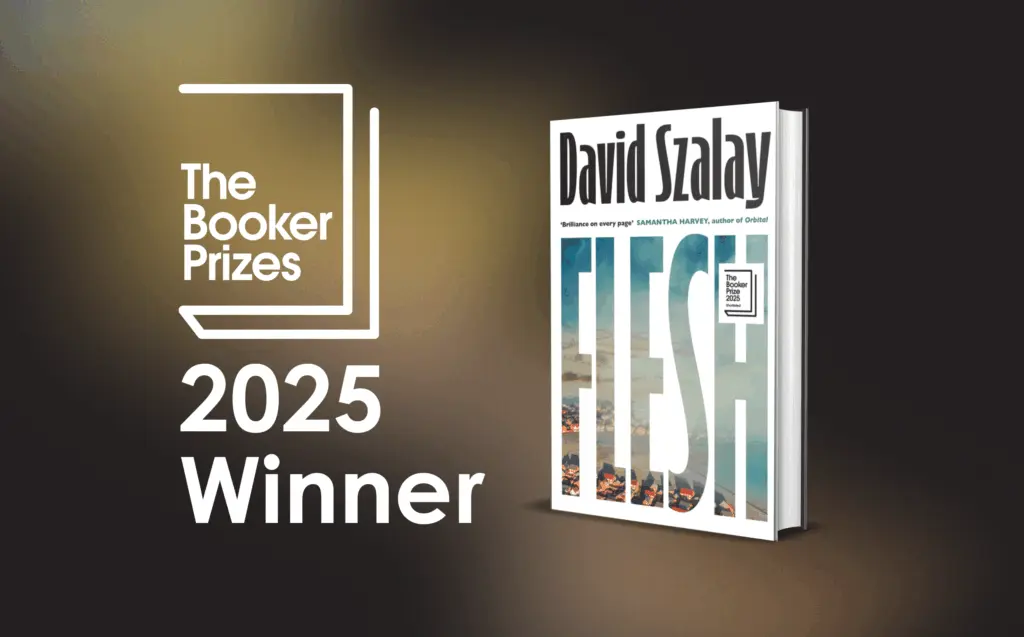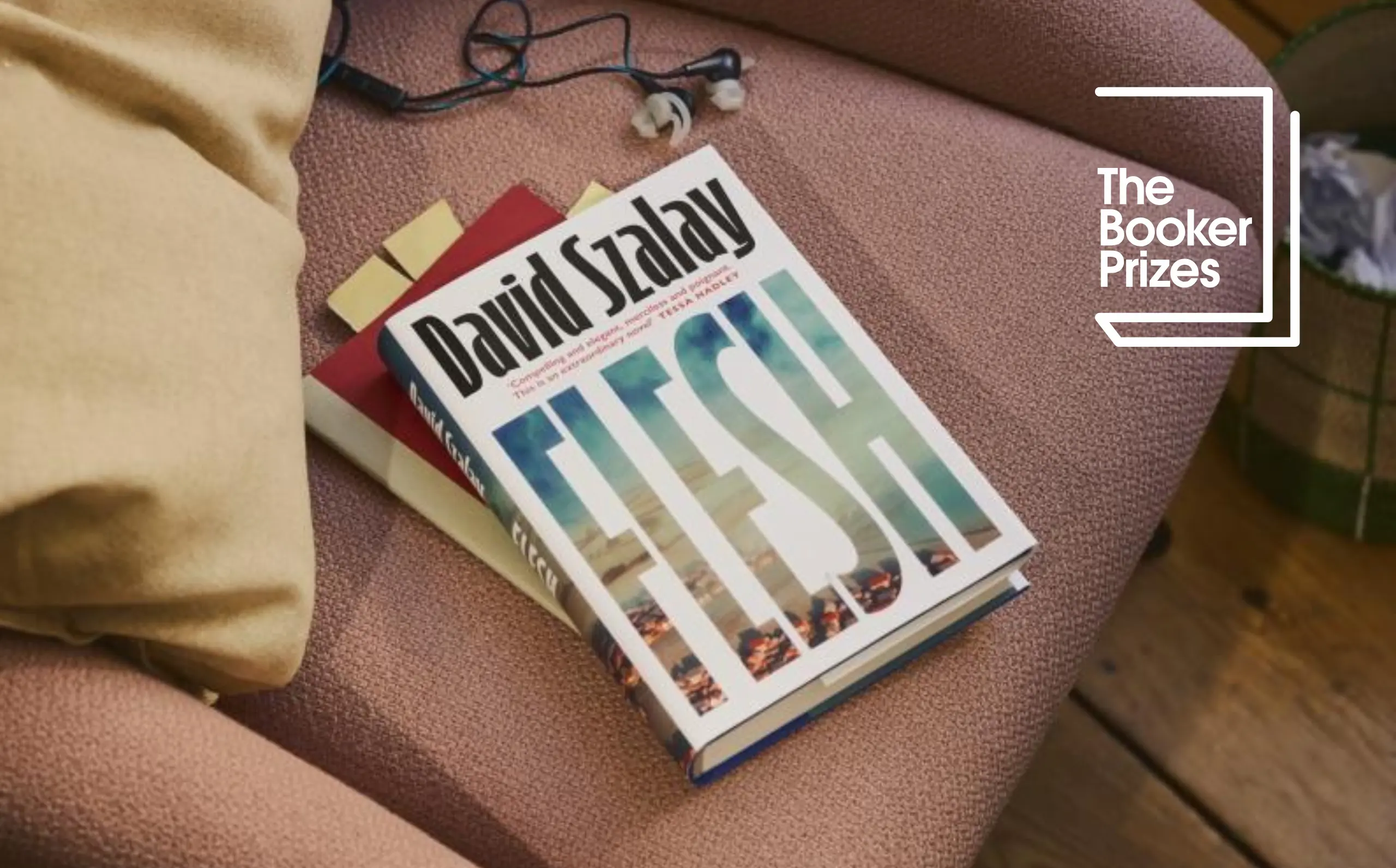Flesh by David Szalay wins the 2025 Booker Prize
A spare but propulsive novel, Flesh follows a man from adolescence to old age as he is unravelled by a series of events beyond his grasp.
Fifteen-year-old István lives with his mother in a quiet apartment complex in Hungary. New to the town and shy, he is unfamiliar with the social rituals at school and soon becomes isolated, with his neighbour – a married woman close to his mother’s age – as his only companion. Their encounters shift into a clandestine relationship that István barely understands, and his life soon spirals out of control.
As the years pass, he is carried gradually upwards on the 21st century’s tides of money and power, moving from the army to the company of London’s super-rich, with his own competing impulses for love, intimacy, status and wealth winning him unimaginable riches, until they threaten to undo him completely.
Flesh asks profound questions about what drives a life, what makes it worth living, and what breaks it.

Judges Comments
‘The judges discussed the six books on the shortlist for more than five hours. The book we kept coming back to, the one that stood out from the other great novels, was Flesh – because of its singularity. We had never read anything quite like it. It is, in many ways, a dark book but it is a joy to read.
‘At the end of the novel, we don’t know what the protagonist, István, looks like but this never feels like a lack; quite the opposite. Somehow, it’s the absence of words – or the absence of István’s words – that allow us to know István. Early in the book, we know that he cries because the person he’s with tells him not to; later in life, we know he’s balding because he envies another man’s hair; we know he grieves because, for several pages, there are no words at all.
‘I don’t think I’ve read a novel that uses the white space on the page so well. It’s as if the author, David Szalay, is inviting the reader to fill the space, to observe – almost to create – the character with him. The writing is spare and that is its great strength. Every word matters; the spaces between the words matter. The book is about living, and the strangeness of living and, as we read, as we turn the pages, we’re glad we’re alive and reading – experiencing – this extraordinary, singular novel.’
Roddy Doyle, Chair of judges


